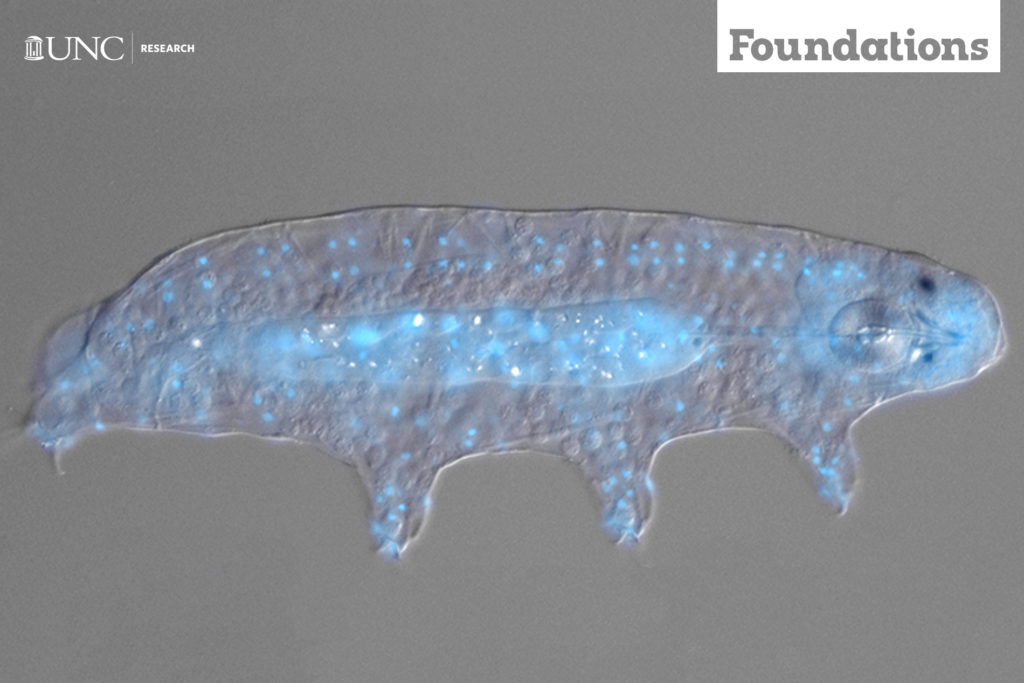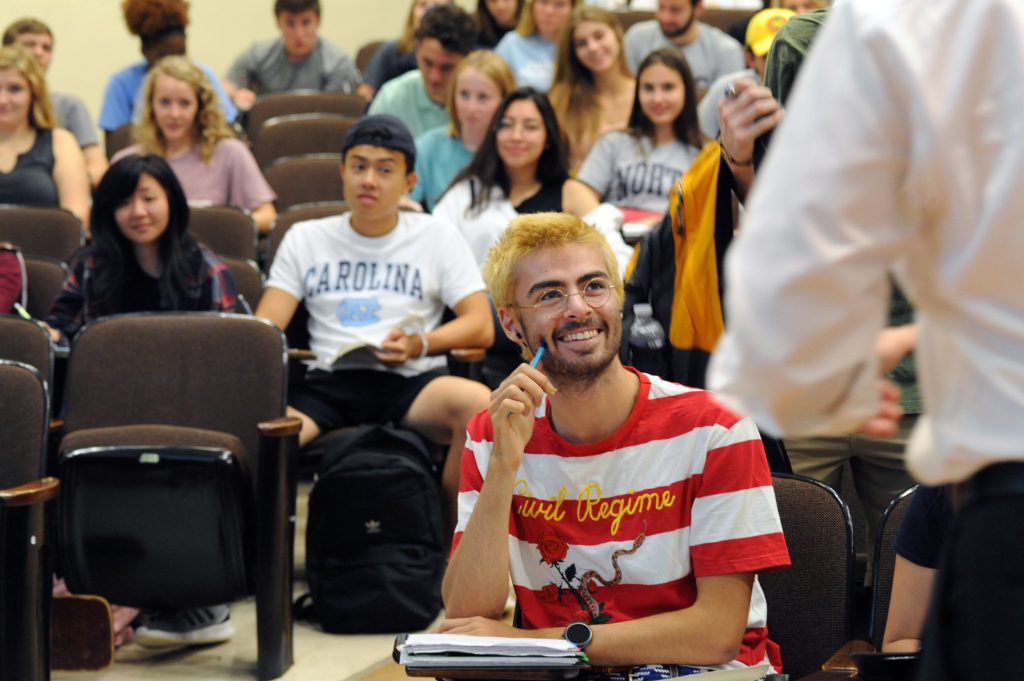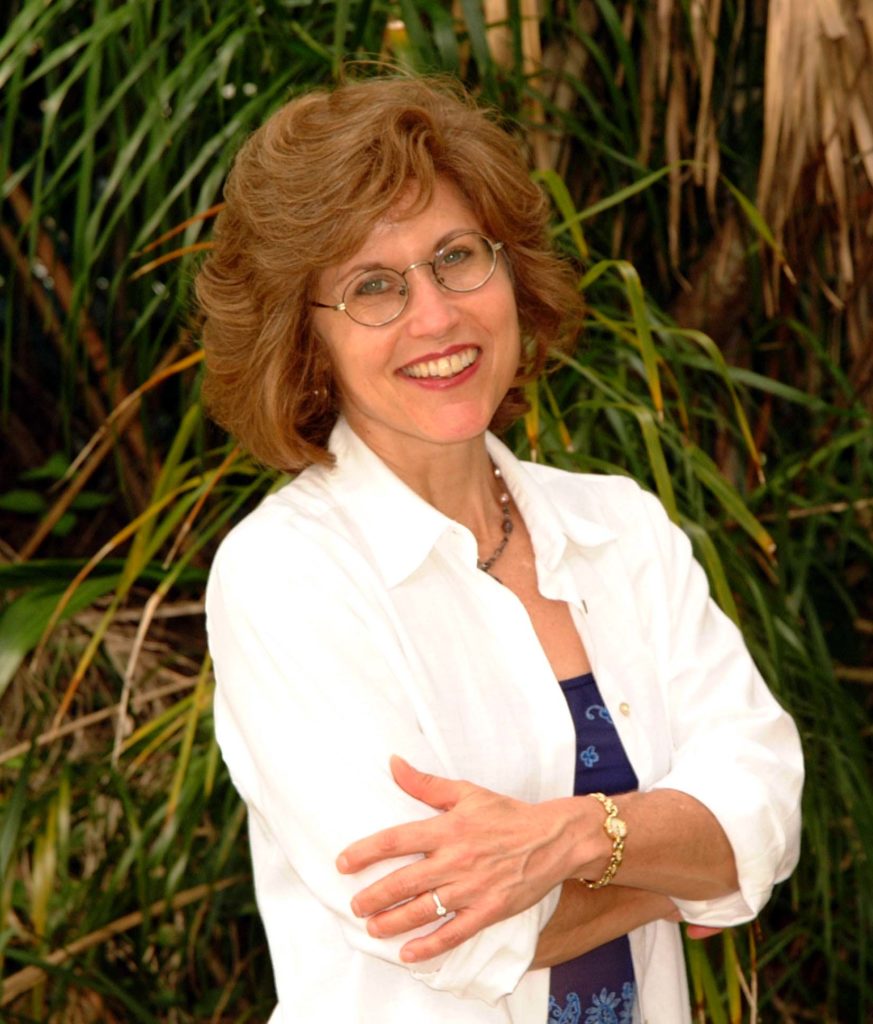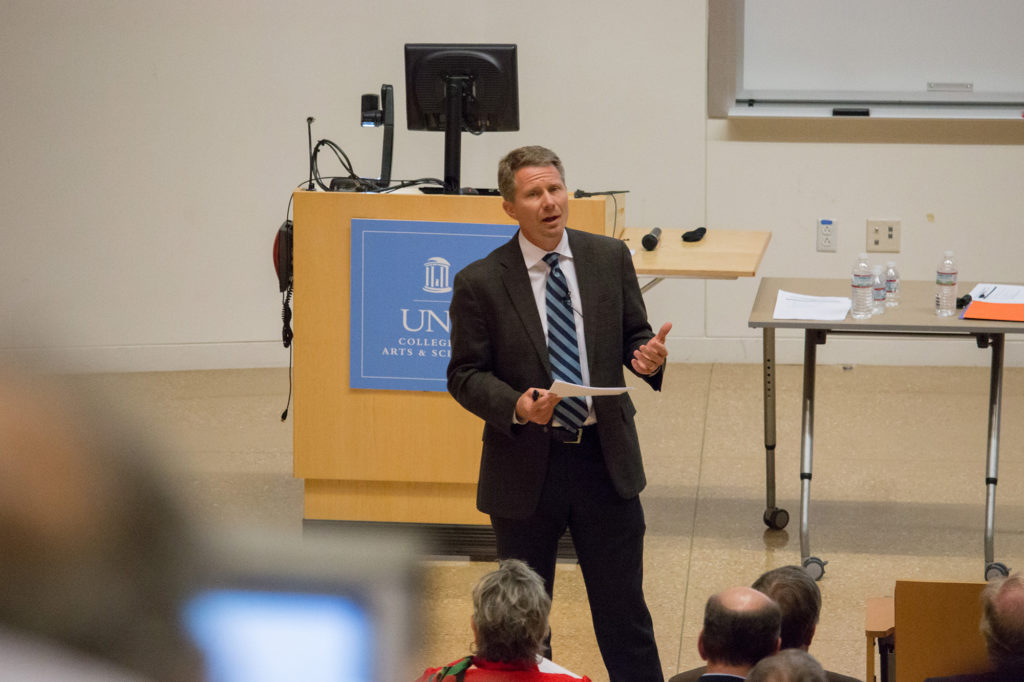
For the first time in the history of the C. Felix Harvey Award for Institutional Priorities at the University of North Carolina at Chapel Hill, two winners have been selected to receive the honor along with $50,000 each. This year’s Harvey Award will support and advance one project that aims to improve transparency in state government and another that will bring North Carolina’s ancient past to life.
One of the 2014 Harvey award recipients comes from the Research Laboratories of Archeology (RLA) in the College of Arts and Sciences. Led by Vincas Steponaitis, professor and director of the research labs, the project, “Ancient North Carolinians: A Virtual Museum of Cultural Heritage and Archaeology,” seeks to create an interactive, state-of-the-art resource on the World Wide Web. This virtual museum will feature exhibits on North Carolina archaeology and the ancient history of the state’s American Indian peoples; resources for K-12 teachers and students, including lesson plans and inquiry-based activities; and information for field trips and heritage tourism related to archaeological sites, Indian tribes and other relevant cultural attractions within the state. The goal is to make this the premier website for disseminating information on North Carolina’s ancient past to the general public and particularly to the state’s teachers and schoolchildren.
“We’re very excited about this award, because it will enable us to use innovative technologies to bring the discoveries of archaeological research to classrooms and communities across the state,” Steponaitis said. “We hope that having access to the state’s rich history in one place will further inform teaching and learning and encourage exploration and discovery.”
According to Steponaitis, most peoples’ awareness of history in North Carolina goes back less than 500 years, yet humans have lived here for more than 12,000 years. Archaeology has revealed this ancient history, yet little of this knowledge is available to the public and in classrooms. A comprehensive website will help remedy this problem.
RLA has been the leading institution for archaeological research in North Carolina for 75 years, and curates some 8 million artifacts and 40,000 photographs relating to N.C. archaeology. These collections, along with the expertise of RLA staff as well as that of collaborators from on- and off-campus areas, will contribute significantly to building the web resource.
The other recipient comes from the School of Journalism and Mass Communication’s Reese News Lab. Established in 2010 with a gift from the estate of journalism school alumnus Reese Felts, the lab functions as an experimental media and research project that focuses on developing and testing new ideas for the media industry. Called “Capitol Hound,” its winning project is a new service that aims to strengthen transparency in North Carolina government by offering searchable transcripts and email alerts for General Assembly sessions. The service enables journalists, advocacy groups, political candidates and others to more closely monitor the activities of the legislative branch and to hold public officials accountable. The project is poised to expand to other states.
Until May 2014, no transcripts of North Carolina legislative sessions were available; residents interested in lawmaker discussions had to listen to long hours of audio recordings or attend meetings in person. To solve this problem, Capitol Hound uses a novel combination of crowdsourcing, software and human transcription to rapidly generate accurate transcripts of government proceedings. By the day after a session, users may search for exact words lawmakers spoke. In addition, users can specify keywords to receive email alerts when lawmakers discuss specific topics. For example, a user who signs up for the keywords “University of North Carolina” will receive email alerts when those words are spoken at the legislative building in Raleigh.
John Clark, executive director of Reese News Lab and Sara Peach, Reese News Lab associate director, led an interdisciplinary student team in a pilot launch of Capitol Hound in May 2014. The pilot launch demonstrated that the crowdsourcing system worked as intended during the short session of the General Assembly, which ran from May through August 2014. In addition, political candidates, lobbyists, lawyers and a small number of news organizations paid $500 each to access transcripts and alerts during the four-month 2014 legislative session.
The pilot launch was funded by the John S. and James L. Knight Foundation. Clark and Peach will use funds from the Harvey award to implement the system for one year starting in January 2015, when the North Carolina General Assembly convenes for the long session. Clark and Peach plan to expand the program to offer free access to the service to every news organization in the state, with the goal of increasing transparency and accountability in North Carolina state government.
“Sara and I are honored by the award that will enable us to put this tool in the hands of our colleagues across the state,” Clark said. “It’s imperative that we, as journalists, help communities stay informed about political decisions that affect them.”
The C. Felix Harvey Award to Advance Institutional Priorities is an annual award recognizing exemplary faculty scholarship that reflects one of UNC-Chapel Hill’s top priorities and addresses a real-world challenge. A selection committee led by UNC-Chapel Hill’s Office of the Executive Vice Chancellor and Provost chooses the winner from a pool of faculty applications.
The award’s namesake is the late C. Felix Harvey, who was chairman of Harvey Enterprises & Affiliates and founder of the Little Bank Inc., both in Kinston, N.C. He graduated from UNC with a degree in commerce in 1943 and went to the Navy midshipman school, then served on a PT boat in the southwest Pacific theater during World War II.
In 2007, along with his family, Harvey made a $2 million commitment endowing the award to acknowledge UNC’s significance to them and the important role Carolina has played in their lives. Five generations of Harveys have earned UNC-Chapel Hill degrees, including Felix and Margaret Harvey’s daughters Leigh Harvey McNairy and Sunny Harvey Burrows, sons-in-law John McNairy and Lee Burrows and several grandchildren.




